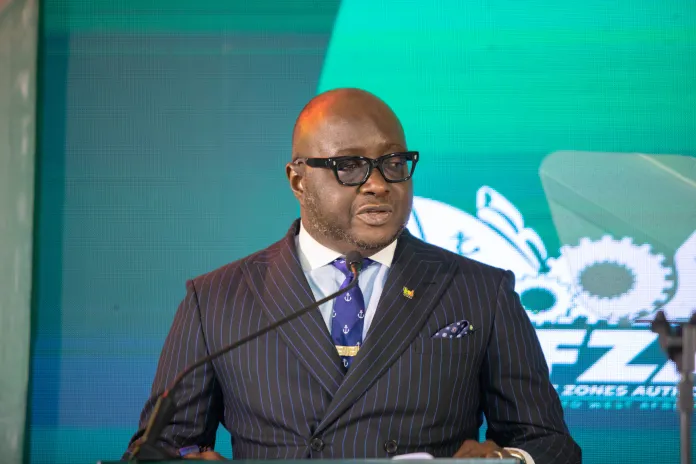The Ghana Free Zones Authority has revealed that it expects about US$230 million to be injected into the economy from thirty nine newly licensed companies by the Authority.
The 39 new free zones companies which were licensed to operate within the last year and a half are also expected to bring in about US$529 million by way of export earnings into the country.
This was disclosed by the Chief Executive Officer of the Ghana Free Zones Authority (GFZA), Ambassador Michael Oquaye Jnr. during the launch of 2022 Investment Week.
Since I took over as CEO, some 39 new companies have been licensed and they are expected to inject an estimated capital of US$230million into the economy. In addition, the estimated export earnings from the 39 companies is US$529million from an estimated production value of US$436million. I am also happy to report that the cumulative exports from the Free Zones enterprise since the programme’s inception stood at US$27billion as of 2020,” he said.
He stated that as the country is currently grappling with a balance of trade deficit and depreciation of the currency, it is critical that Ghana increases its exports to earn needed foreign exchange to stabilise the free fall of the local currency.
“Export-led industrial growth is one of the most appropriate strategies to achieve economic development; this has been the mandate of the GFZA. Thus, the Free Zones programme’s importance in reversing our balance of trade deficit and depreciating cedi is vital.”
Ambassador Oquaye Jnr. also revealed that the cumulative exports from the Free Zones enterprise since the program’s inception stood at USS 27 billion as of 2020.
This he noted indicates that Ghanaian companies also have the potential to take advantage of free zones incentives and make a mark in the international market. Currently, the total number of active companies is 217.
Out of the 217 active companies 72 are wholly Ghanaian-owned companies, representing 33percent; 74 are wholly foreign-owned companies, representing 34 percent; and 71 are joint ventures, representing 33 percent.
“I am giving this breakdown because the Free Zones programme has been misconstrued as mainly favouring foreign investors. On the contrary, the programme is open to all investors, both foreign and local. Moreover, with the opportunities that AfCFTA also offers, we are encouraging Ghanaian-owned businesses to take advantage of the 1.3 billion African market to expand their activities. The impact of these achievements on the economy cannot be over emphasised.” he added.
Source: myghanadaily


